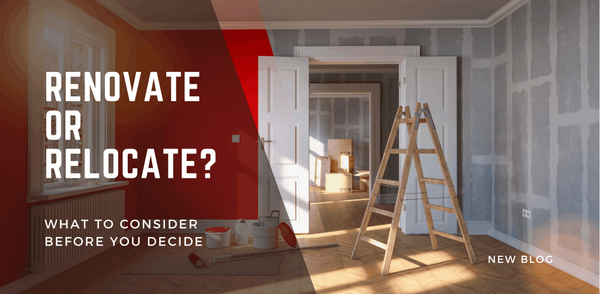

DIY vs. Professional Renovations: Which Is Right for Your Home?
Home renovations can add value to your property, enhance your living space, and make your home more enjoyable. However, one of the biggest decisions you’ll face is whether to tackle the renovation as a DIY project or hire a professional contractor. Each option has its pros and cons, and what’s right
Read More

Renovate or Relocate? What to Consider Before You Decide
As a homeowner, there often comes a point when your current space no longer meets your needs. Maybe your family is growing, your lifestyle has changed, or you simply want an upgraded living environment. When you reach this crossroad, you have two main options: renovate your current home or relocate
Read More
Categories
Recent Posts










